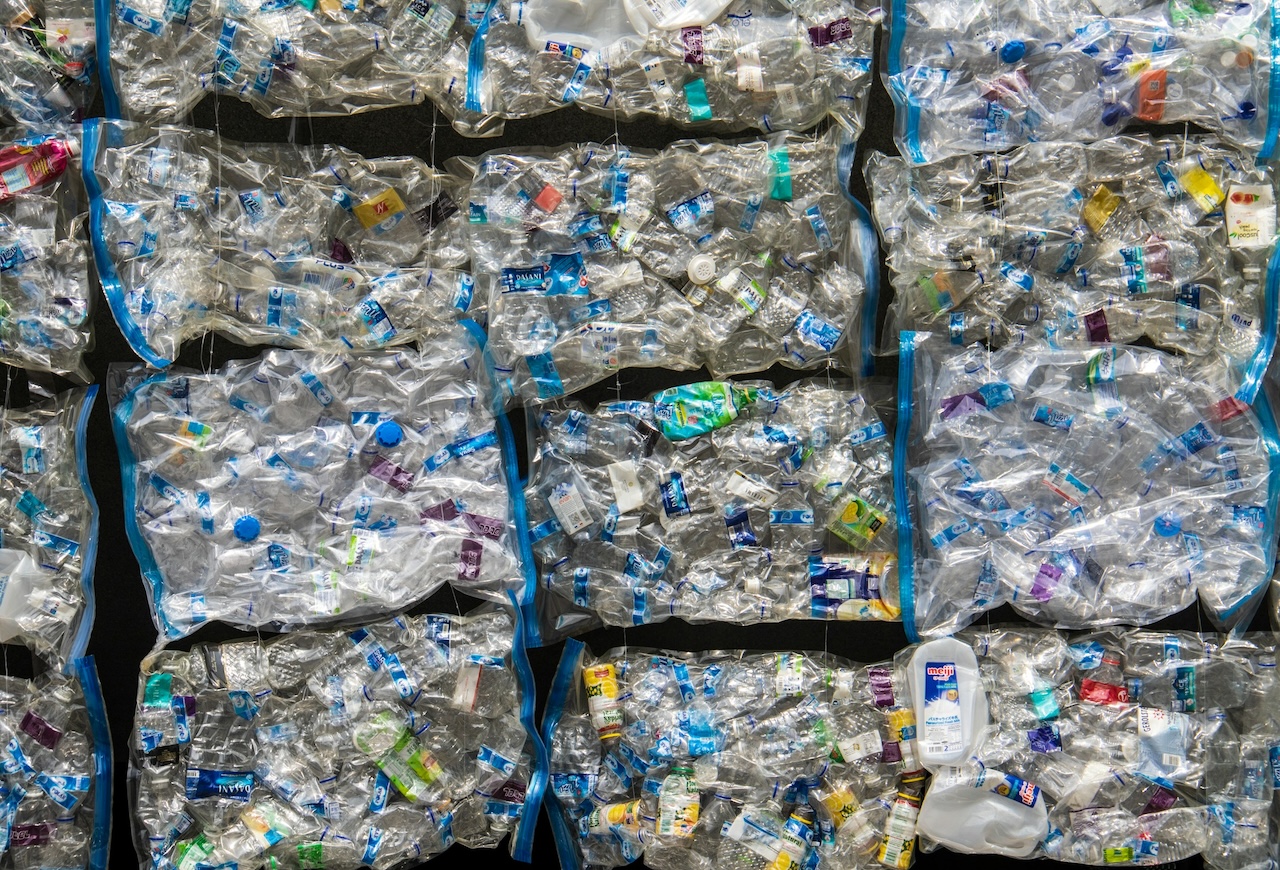According to a report by Planet Tracker the focus on recycling has allowed the plastic industry to continue the expansion of production, shifting the blame for global plastic pollution onto consumers.

Non-profit financial think tank Planet Tracker has published a report aimed at shedding light on what the organisation says are deceptive practices employed by the plastic industry to shift focus away from upstream measures to reduce plastic pollution, such as limiting production and adopting alternative materials.
Planet Tracker said that for years the plastic industry has been promoting recycling as the solution to the world’s plastic pollution crisis despite the fact that a staggering 91% of plastic is not recycled globally.
The authors of ‘The plastic recycling deception’ report said that the focus on recycling has allowed the industry to continue the expansion of production and to protect its profit margins, and that to date, this strategy has successfully shifted the blame for global plastic pollution onto consumers and municipalities or their sub-contractors. The report found that few municipalities could afford these clean-up costs while many consumers have no waste collection at all.
According to the report, the plastic industry’s use of resin identification codes (RIC), often mistaken for recycling symbols, has also further misled policymakers, regulators and consumers into believing in the circularity of plastic.
“The plastic industry’s tactics have successfully shifted focus away from upstream measures, such as limiting production and adopting alternative materials,” said John Willis, director of research at Planet Tracker. “By promoting the illusion of recyclability, the industry has effectively passed the financial burden of waste treatment onto local municipalities and waste-pickers, often the financially weakest link in the plastic supply chain”.
With plastic production set to triple by 2060 and lifecycle emissions from plastics estimated to more than double, accounting for 4.5% of global emissions, the report has called on upstream corporates to take responsibility for their role in plastic pollution by adopting a clear plan to transition production towards safe, environmentally sound and sustainable materials.
Financial market blind spot
The report highlights a financial market blind spot on the issue of plastic pollution, stating that financial markets have bought into the recycling illusion by assigning low equity risk premia to plastic producers.
The authors said investors needed to recognise that recycling alone was unlikely to solve plastic pollution and that upstream measures to limit production, such as extended producer responsibility (EPR) schemes, regulation, or taxation of production were required. They called on investors, lenders and insurers to consider the full spectrum of risks associated with plastic pollution.
Richard Wielechowski, senior investment analyst at Planet Tracker, told Impact Investor that investors working in the area of impact have an important role to play in addressing the plastic pollution crisis through investments in developing technologies or industries tackling the issue.
“This could be at any point in the full plastic life-cycle, from alternative feedstocks to waste management,” he said. “Although we argue in our note that recycling is not the only solution needed, it is part of the solution for addressing plastic pollution.”
Wielechowski cautioned investors about supporting, or appearing to support projects which implied universal plastic recyclability.
“For instance, recycling should be for a known identifiable end-market use, rather than the collection of plastic waste which is then shipped to other regions where its fate is unknown/untraced and it may end up leaking into the environment,” he said.
Impact investors respond to plastic pollution crisis
Commenting on the issue of plastic recycling Laura Boyle, head of stakeholder engagement at impact fund of funds manager Snowball, told Impact Investor that she agreed that the plastic industry has pushed the narrative that recycling alone could solve the plastic pollution crisis but that reducing and reusing materials were equally crucial steps.

“To address this issue effectively, we need to adopt ‘systems thinking’, which means looking at the interconnected social, technical, and economic factors that contribute to plastic pollution,” she said.
“At Snowball, we look for fund managers who can deploy capital with broader intent and who can embrace the idea of system transformation.”
Boyle gave the example of Circularity Capital, one of Snowball’s selected managers, which she said has a strong focus on circular economy principles.
“Companies in the Snowball portfolio like Pack Benefit are developing alternative materials such as wood chips, while sustainable delivery firm HIVED integrates social and environmental considerations into its business model, aiming to minimise packaging use over time. These solution-focused companies are also taking a holistic look at the impact of their businesses and the supply chains in which they operate.”
Luc van Haaren, investment analyst for Triodos Investment Management, also agreed that there was too much focus on recycling plastics rather than on re-using and reducing plastic packaging. He told Impact Investor that the plastics recycling industry currently lacked the quality and capacity to recycle large volumes of plastic packaging into the same quality plastic.

“Besides that, many plastic products continue to be difficult to recycle given the combined layers of different materials or plastics. We therefore continue to depend on fossil raw materials for virgin plastics and end up with large streams of landfill waste, energy-intensive incineration and in the worst case plastic pollution,” van Haaren added.
He explained that while continuing to advance plastics recycling was part of the solution, that there should also be more emphasis on the reducing and re-using of plastics, by switching to other materials for packaging or by designing refillable packaging.
“Here investors can play a role to push companies in the consumer sectors to adopt strategies that not only focus on sourcing recycled plastics but also on the reducing and re-using of plastic packaging and eventually on the proper recycling of their products.”
Investor statement
Urging investors and policymakers to look beyond recycling as a singular solution, Planet Tracker has called on investors to support its investor statement on the role of petrochemical companies in resolving plastic pollution and to engage with the industry towards the transition to production of safe, environmentally sound and sustainable plastic.
Wiechelowski said: “We invite all investors concerned about plastic pollution to sign the Planet Tracker investor statement on the role of petrochemical companies in resolving plastic pollution to show their support for the industry taking greater responsibility for its role in solving the problem.”
Although Snowball could not say whether it would sign the investor statement without further deliberation and discussion, Boyle said that investors helped determine which companies thrived “meaning those in asset allocation roles should take responsibility when the firms they support damage the planet.”
She added that ultimately, the transition to a sustainable and environmentally sound economy required a collective effort but that “given the financial sector’s immense power”, it could “drive meaningful progress” if it looked “beyond traditional investment strategies.”
Van Haaren said Triodos Investment Management would not sign the investor statement as it was directed towards petrochemical companies in which they did not invest due to the company’s minimum standards.






